

GOVT’S QUOTA RAISED TO 70PC AS CABINET GREENLIGHTS NEW HA JJ, AI POLICIES
g PM SHEHBAZ-LED CABINET OKAYS
DIGITIZATION OF HAJJ OPERATION TO ENSURE TRANSPARENCY, EFFICIENCY, AND WORLD -CLA SS SERVICES FOR PILGRIMS
g PM APPLAUDS THE IT MINISTRY, ALLIED INSTITUTIONS FOR TIMELY EFFORTS, SAYING, AI WILL NOT ONLY MODERNIZE ECONOMY BUT ALSO ENHANCE PRODUCTIVITY
mobile app digital wristbands and mobile SIMs for better tracking and service delivery transparent selection of assistants through competitive testing, emergency compensation mechanisms, and upgraded lodging and food arrangements the Prime Minister also directed the Ministry of Information technology to collaborate with the Ministry of Religious Affairs to ensure seamless digital transformation of the entire Hajj process In another major development, the Federal Cabinet unanimously approved the National AI Policy 2025 designed to create a complete AI ecosystem in Pakistan the policy aims to democratize access to artificial intelligence enhance public services, and open up new employment and innovation avenues
“Our youth are Pakistan’s greatest asset Providing them with education skills and equal opportunities in AI is a top priority stated PM Shehbaz Sharif
g NATIONAL AI POLICY 2025 APPROVED TO CREATE A COMPLETE AI ECOSYSTEM AND DEMOCRATIZE ACCESS TO AI, ENHANCE PUBLIC SERVICES, AND OPEN UP NEW EMPLOYMENT AND INNOVATION AVENUES
g AN AI COUNCIL AND A MA STER PLAN & ACTION MATRIX WILL OVERSEE THE POLICY ’S IMPLEMENTATION
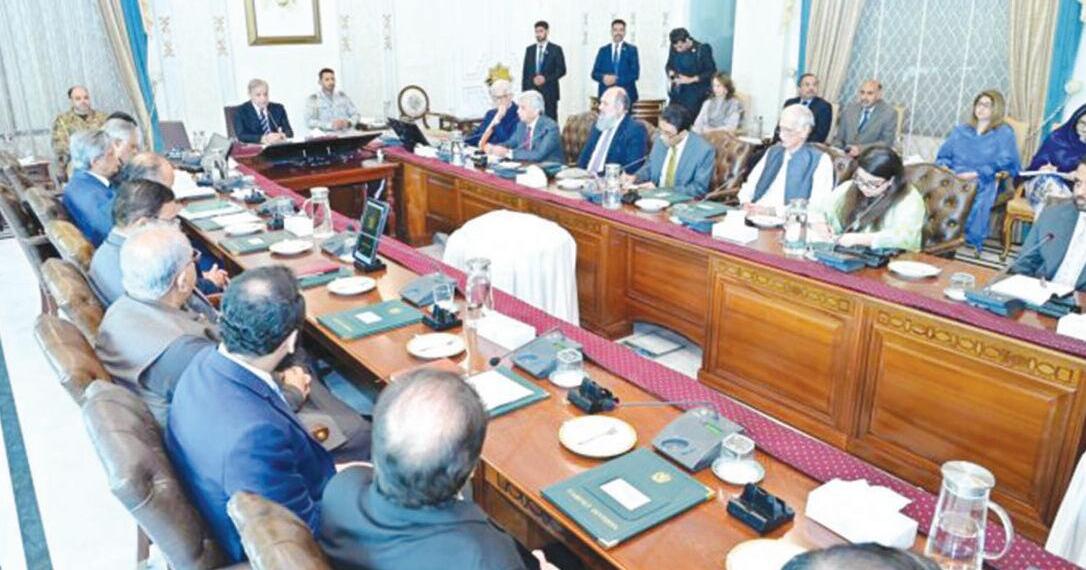
Prime Minister Shehbaz Sharif
India escalates ‘proxy war ’ against Pakistan after defeat in Marka-e-Haq: COA S
RAWALPINDI
S ta f f R e p o R t
Chief of Army Staff Field Marshal Asim Munir on Wednesday said that India escalated its “proxy war” against Pakistan following its “decisive defeat in Marka-e-Haq the 19-day military confrontation with New Delhi spanning April 22 to May 10 the military s media wing said
Interacting with participants of the 16th National Workshop in Balochistan, the chief of army staff (COAS) vehemently condemned India’s blatant sponsorship of terror proxies characterising them as a failed attempt to target the deep-rooted patriotism of the people of Balochistan the Inter-Services Public Relations (ISPR) said in a statement issued on Wednesday
Noting that India had escalated its proxy war to advance nefarious designs i e , Fitna al-Khawarij and Fitna-al-Hindustan pawns of hybrid war against Pakistan Field Marshal Munir said that “these proxies will face a similar fate and humiliation their patron faced in Marka-e-Haq
Addressing a diverse group of stakeholders including parliamentarians representatives of civil society civil servants academicians media personnel and youth the army chief emphasised that terrorists knew no bounds of religion, sect, or ethnicity, necessitating a unified national response, stressing the imperative of collective resolve in confronting this menace Reaffirming Pakistan Army’s unwavering commitment to uproot the menace of terrorism and the inevitability of socio-economic uplift of Balochistan for national cohesion and integration the COAS reiterated the country s commitment to regional peace and underscored the nation s preparedness to respond decisively to any external or internal threats, protecting national prestige and ensuring the well-being of its citizens Furthermore he also highlighted the pivotal role of development initiatives in Balochistan advocating for enhanced inter-agency cooperation and a cohesive national approach to propel provincial progress and national advancement


and Research


FBR imposes 18% sales tax on cotton imports after prolonged delay
ucts to China These applications are currently under review by the Ministry of National Food Security & Research Once all regulatory criteria are met, the companies could be au-
thorized to begin exports
The proposed exports would be routed through Gwadar in Balochistan which has been designated as the sole processing and export point for this trade
The government has emphasized that no processing outside Gwadar will be allowed to ensure proper oversight and prevent the domestic distribution of donkey meat Officials believe that the authorised export of donkey meat could provide a significant source of foreign exchange for Pakistan However concerns about unauthorised operations remain
Recently, an unregistered foreign national was found running an illegal donkey meat operation in Islamabad
Meanwhile, in Battagram, a raid conducted by district authorities led to the discovery of a slaughtered donkey at a makeshift camp in the Koza Banda area The district administration arrested one suspect in connection with the illegal slaughter and the case is under investigation



S i n d o o r s h a k i n g I n d i a n
p a r l i a m e n t
D ebate heaps coals of fire on Modi ’s head
OP P O S I T I O N Leader Rahul Gandhi put Indian Prime Minister Narendra Modi in a cleft stick when he asked him to say that US President Donald Trump lied when he said that Pakistan had shot down several Indian jets during Operation Sindoor India had insisted that Sindoor was a success, and that it had not asked Mr Trump to arrange the ceasefire that ended the conflict The first indicates that India cannot throw its weight around in the region the way Mr Modi has always claimed while the second opens the door to US intervention in the region, something which India has always decried
Perhaps the most damaging moment for the Modi government during the entire debate came when former Home Minister P Chidambaram told the Lok Sabha that the was no credible evidence that Pakistan was involved in the Pehelgam attack which led to India’s launching Operation Sindoor This knocked out the entire basis of the Indian case, for it meant that its attack on Pakistan, as well as its suspension of the Indus Waters Treaty, were shown to have no justification Mr Chidambaram’s successor, Amit Shah, presently the Home Minister did not help matters by saying that the attackers had Pakistani chocolate in their possession The debate in Indian Parliament is uncovering a significant truth: that the Indian government blundered badly in both its false-flag operation and in the ensuing military operation It should be noted that while the ruling BJP is trying to portray the Opposition Congress as pro-Pakistan, Congress conducted both the 1965 and 1971 Wars against Pakistan the latter ending with the break-up of Pakistan All of the evidence against the official version being uncovered merely reflects the Congress urge to destroy the BJP claim that it is the true defender of the nation There is nothing to indicate that a Congress government would not have been as harsh
This may reflect an uncomfortable truth: that the Indian masses have bought into the nationalist rhetoric of both the BJP and Congress and thus India is bent on the destruction of Pakistan The BJP is more forthright, with its Hindutva ideology and overt casteism, but Congress lip service to secularism should fool no one It is equally a party of high-caste Hindu chauvinists What is being discussed in the Lok Sabha is not the essential wrongress of the Indian attack but flaws in execution

Dedicated to the legac y of late Hameed Nizami Arif Nizami (Late) Founding Editor
M A Niazi
Editor Pakistan Today Babar Nizami Editor Profit
aged enough dialogue to calm tensions Today, the


BO R D E R disputes are never only about geography They are about the weight of history the politics of memory and the insecurities of nations The renewed violence between Thailand and Cambodia, erupting on July 24, near the centuries-old KhmerHindu temple of Prasat Ta Muen Thom, is yet another reminder that unresolved pasts have a way of breaking into the present What began as a landmine incident injuring Thai soldiers spiraled into a full-blown crisis Thailand installed barbed wire along a disputed section of the frontier Cambodia accused Bangkok of provocation Diplomatic gestures turned hostile: ambassadors recalled border crossings sealed armies mobilized The predictable outcome followed by barrages rocket fire airstrikes and civilians caught in between Eleven Thai civilians and a soldier are confirmed dead Cambodian rockets struck villages forcing the evacuation of tens of thousands Thailand retaliated with F-16 airstrikes Phnom Penh denies its own losses, claiming self-defence, while Bangkok insists the aggression began on the other side The script is old; only the victims are new This is not an isolated flare-up In May similar clashes claimed lives but backchannel diplomacy quieted the guns This time, the violence has escalated further, signaling a dangerous shift The deployment of airpower suggests a willingness to expand beyond local skirmishes And the political relationship between the two neighbours is in free fall now at its lowest point in years The roots of this dispute lie in colonial-era cartography The borders that divide Thailand and Cambodia were drawn not by them but by the French and British, leaving behind ambiguities that became time bombs For Cambodians, temple complexes like Ta Muen Thom are sacred proof of Angkorian civilization a reminder of a cultural golden age For Thais they are part of a heritage they once influenced Both nations interpret history through lenses of pride and grievance Compromise becomes betrayal Concessions feed nationalist outrage History offers chilling echoes In 2011, a similar fight erupted near the Preah Vihear temple killing 28 and displacing tens of thousands At that time the Association of Southeast Asian Nations (ASEAN) man-
T h e t a i l w a g g i n g t h e d o g
H o w p re s t i g e d r i ve s I n d i a’s s t r at e g i c A m b i t i o n s
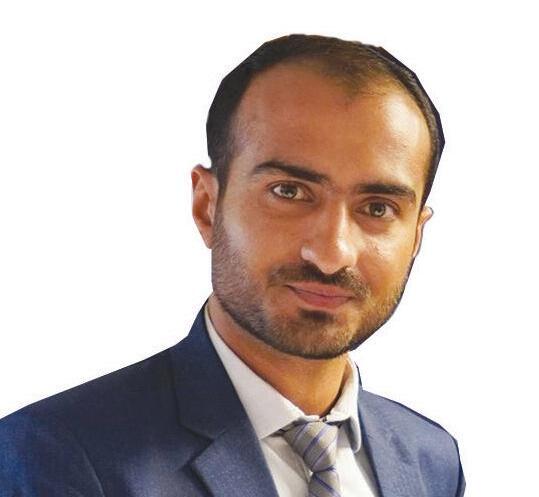
Apayload), missiles can strike far beyond the region Yet India faces no credible existential threat from Europe or North America These long-range capabilities appear more about demonstrating strength than deterring immediate dangers The missiles serve as trophies not just weapons Showcasing ICBM capability to the world signals its desire to stand alongside other nuclear giants India s space ambitions tell the same story LSE Fellow Dr Dimitrios Stroikos, in his article “Why does India want to be a space power? Chandrayaan-3 and the politics of India’s space programme argues that highly visible technoscientific projects serve as markers of power status and modernity, a practice rooted in the 19th century when techno-scientific advancement emerged as a standard of “civilization” demarcating the “society of civilized states” from non-European societies through a “techno-scientific orientalist discourse In this way the space programme can be understood as a symbol of postcolonial India s modernity statehood and national prestige From this perspective, the pursuit of the Chandrayaan lunar programme is part of India’s effort to climb up the ladder to the top tier of the hierarchical global space order and have a bigger “seat at the table’’ of space affairs The 2019 anti-satellite test Mission Shakti revealed more than that India demonstrated its military aspirations in space The Indian Space Research Organization no longer just launches satellites for civilian purposes It now asserts India’s place in the militarized orbit This isn’t just about national security This is about optics Ashley J Tellis an Indian-origin expert on strategic issues explained a very interesting point regarding the Indian strategic thought in his article India s Great Power Delusion He writes that India isn t comfortable with the US-
same ASEAN looks weaker It is overstretched by Myanmar ’s civil war rifts over the South China Sea and the deepening US-China rivalry The region s capacity for crisis management has withered just as the risks have grown This matters far beyond a few kilometres of jungle Southeast Asia has built its modern identity on economic dynamism and relative peace A border conflict between two ASEAN members threatens to fracture that image It exposes the limits of the socalled ASEAN Way consensus non-interference endless dialogue without resolution It risks setting off an arms race, as both countries invest in military modernization to deter future incidents It disrupts the lives of border communities whose livelihoods depend on trade and tourism And like all unresolved conflicts it tempts outside powers Cambodia has deep ties with China Thailand retains security links with the USA Prolonged militarization makes it easier for these rival powers to turn a bilateral dispute into another pawn on the Indo-Pacific chessboard The Emerald Triangle where Thailand, Cambodia, and Laos meet has always been geopolitically fragile If Laos feels threatened or external actors meddle the conflict could spiral beyond the control of either Bangkok or Phnom Penh The humanitarian costs are already mounting Forty thousand villagers have been forced to leave their homes Shelling has struck hospitals Refugees may soon spill across borders joining the region’s existing crises from Myanmar Every passing day of violence risks leaving deep scars that will last far longer than any ceasefire Where is ASEAN in all this? It has frameworks on paper: the Treaty of Amity and Cooperation, the ASEAN Regional Forum, the Institute for Peace and Reconciliation Indonesia could,
e s s o n d i s t a n t s u p e r p o w e r s t h a n o n t h e a b i l i t y o f i t s o w n n e i g h b o u r s t o s e t t l e o l d a r g u m e n t s w i t h w i s d o m r a t h e r t h a n w e a p o n s .
led unipolar world order Despite all the help it is getting from Washington against Beijing India strives for a world with multiple centres of influence and where it too can get a place at the high table
This belief was expounded by the Indian Prime Minister Atal Bihari Vajpai in 2004 when he declared that India does not believe that unipolarity is a state of equilibrium in today s world India he further asserted would work to build a cooperative, multipolar world which accommodates the legitimate aspirations and interests of all its component poles” While analyzing the procurement development and deployment of strategic weapons of India this postulate of Indian strategic thought should be kept in mind Washington should also be wary of the fact that whatever leniency it is providing to New Delhi, for the containment of Beijing, would one day be detrimental to its influence and position In his article, Tellis also maintains that with the present economic trajectory (which is likely to continue) India could barely manage to have half of China s GDP in the next 25 years Which proves the notion that New Delhi s self-imagination as a great power is by far a delusion Prestige-driven militarism may earn loud applause from a hyper nationalist audience at home but applause does not equal security At the heart of this lies the BJP s political model
Projecting India as a rising great power is not just a foreign policy aim but a domestic political script For many, Narendra Modi is cast as the macho leader who will place India on par with global giants The symbolism of strength feeds public imagination even if the substance of strategy falls short History is full of strongmen whose chauvinistic flair has pushed regions into chaos and conflict One once marched through Europe under the guise of Anschluss and another is now emerging in South Asia with the chimera of Akhand Bharat Strategic balance cannot survive on vanity projects If the script remains unchanged the region may once again be cast in a play that ends in ruin
The writer is Research Officer at the Center for International Strategic Studies, AJK
H i s t o r y i s f u l l o f s t ro n g m e n w h o s e c h a u v i n i s t i c f l a i r h a s p u s h e d r e g i o n s i n t o c h a o s a n d c o n f l i c t
i s n ow
Civic rights denied
Doses of danger
alarming proportions in the country Various Drug Regulatory Authority of Pakistan (Drap) regulations as well as laws of the land have clearly banned such a practice for being a risk to public health Yet, the practice continues unabated When allopathic drugs are mixed into traditional medicines it becomes a case of fake or adulterated
Abdul ReHMAn

Is the USA following the USSR?
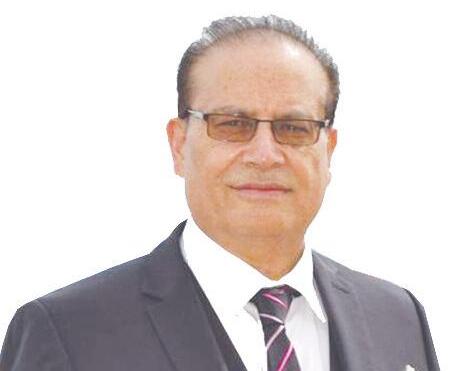

TH E warning comes not from an enemy, but from within the ranks of intellectual scrutiny Peace Studies researcher Jan Oberg has sounded the alarm that the USA is dangerously close to walking the same doomed path as the USSR His theory is not based on ideological rhetoric but on a structural analysis of declining empires those that prioritized militarism over diplomacy, war over peace, and brute force over political legitimacy According to Oberg and substantiated by today’s geopolitical developments the USA is eroding its foundational strength by investing in weapons while its economy weakens, its diplomacy falters, and its international credibility dwindles His chilling comparison to the Soviet collapse, which came after overextension in an unwinnable arms race holds a mirror to current US foreign policy and the reflection is deeply troubling A powerful nation is not defined by its military might alone Oberg argues that a truly enduring power must have equilibrium military capability, yes, but equally robust economic resilience diplomatic dexterity adherence to international law and a moral compass that commands global respect The USA s current trajectory betrays this balance It has increasingly become a nation that exports weapons instead of solutions, one that supplies bombs instead of brokering peace In doing so, it is forfeiting not just friends but also its own values While other economies China India Brazil grow rapidly building infrastructure trading in goods and cultivating partnerships, the USA has become synonymous with conflict zones
Nowhere is this truer than in Ukraine Had the USA and NATO been willing to acknowledge Russia s core concern its opposition to Ukraine joining NATO this war may have been averted altogether But instead of diplomacy Washington chose to flood Ukraine with arms sending billions in military aid even as the nation s own cities crumble under the weight of failing infrastructure and economic stress By turning Ukraine into a geopolitical battleground against Russia, the USA prolonged a war rather than seeking its resolution It invested in firepower not peace talks Then there is the US alliance with Israel which more than any other has morally bankrupted the USA s standing in the world For decades, Israel has carried out operations in Gaza, Lebanon, and Syria, and now first the Biden and now Trump Administration have stood complicit in enabling Israel’s bombardment of Gaza an act many are calling ethnic cleansing A nation that once claimed to champion democracy and human rights now vetoes UN resolutions aimed at feeding starving children Stories abound of Gazan citizens collapsing from hunger at aid distribution points mothers whose skeletal forms mirror images from the worst genocides in history and children dying before they can reach food lines The world watches in horror And at the centre of this horror, the USA is no longer seen as a neutral power, but as an accomplice to mass suffering It is not only distant nations that recoil from US policy Even its closest allies like Canada are increasingly disillusioned Long considered America s trusted neighbour and friend, Canada is now resisting US economic pressure, building its own resilience to unjust restrictions and defining its foreign policy
The 21st centur y demands a
apart from Washington s dictates Likewise Europe once united under the NATO umbrella, is slowly seeking independence from US dominance, investing in its own defense frameworks and strategic autonomy
More alarming still is the USA’s behaviour toward Iran The recent bombing of Iran s nuclear facilities conducted without credible proof international backing or even meaningful justification has shaken global confidence in the US respect for sovereignty and due process Iran, which has never been proven to develop nuclear weapons and which operates under the fatwa of its Supreme Leader forbidding such development became a target not of deterrence but of sheer political arrogance Bomb first ask later This behaviour no longer inspires awe; it invites isolation True strength, Oberg contends, does not lie in flexing military muscle It lies in diplomacy that solves conflicts not escalates them It lies in upholding human dignity protecting freedom of speech and respecting sovereignty It lies in providing infrastructure, education, healthcare, and technological innovation not merely funding the next generation of fighter jets And the USA is increasingly failing to meet those criteria The economic dimension of this decline is undeniable The USA has lost a significant part of its economic sovereignty now burdened with record debt, trade imbalances, and an eroding manufacturing base Instead of investing in domestic welfare, it chooses to finance wars abroad While its people struggle with rising inflation healthcare crises and decaying infrastructure Washington prioritizes regime changes proxy wars and military aid to allies that violate international norms The result is clear: the USA s legitimacy is in free fall In contrast,
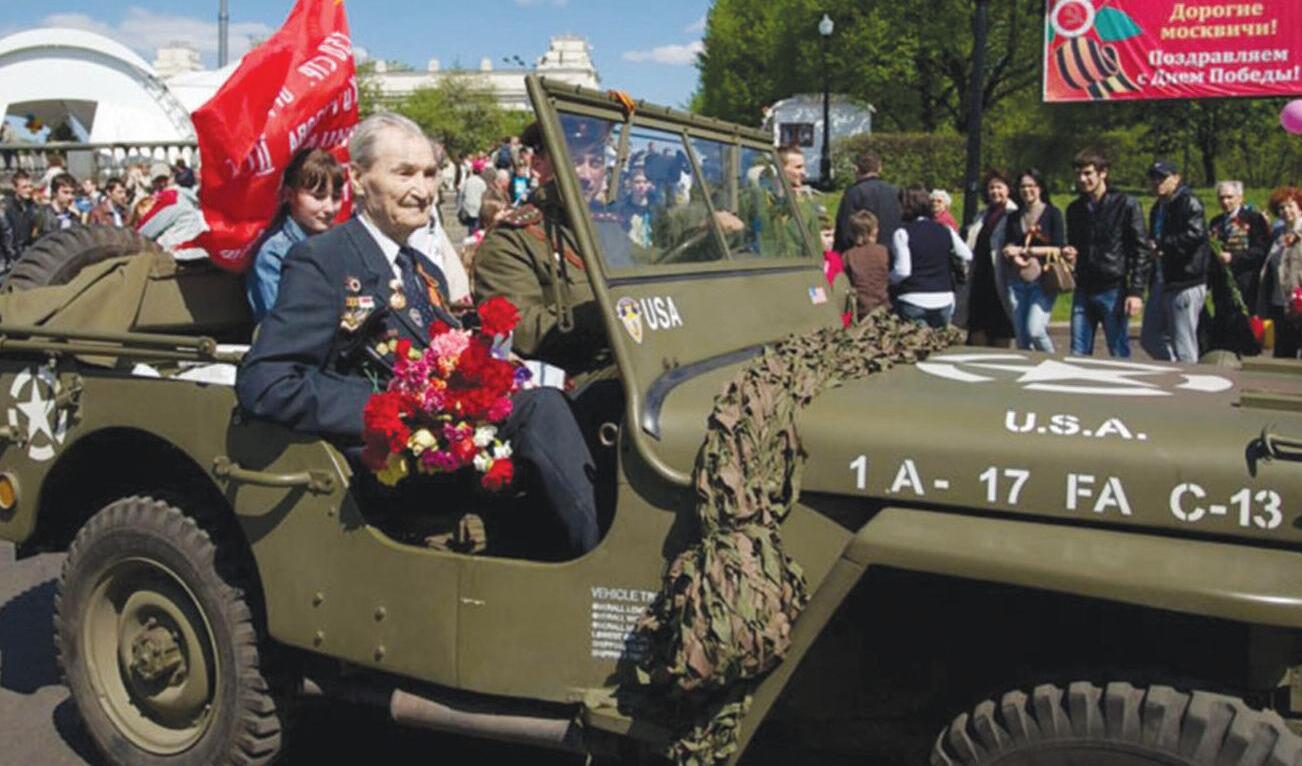
model of strength Not one built on coercion, but
cooperation. Not one built on regime chang e , but on mutual respect. The future will belong not to those who dominate with drones, but to those who uplift with ideas,
T h e U K i s s l i p p i n g i n t o
r a c i s t d y s t o p i a
Gangs of white youth would hunt us down, especially after the pubs closed, in wave after wave of what they called ‘Paki bashing’
The sur vey showed that nearly 50 percent of the population think that multiculturalism is not good for the countr y, while 73 percent thought more ;race riots’ will happen soon
An ex-chief justice in the dock: How Hasina broke the judiciar y
He bears significant responsibilit y for a system that denied justice to countless opposition figures and, in many cases, ac tively persecuted them; therefore, he should be treated as such
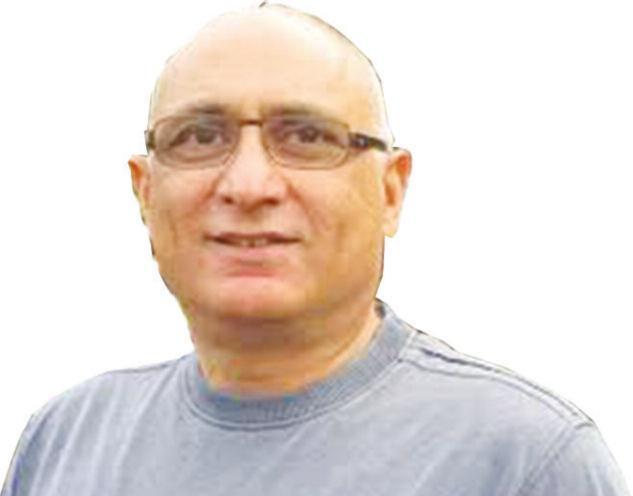

to refugee camps in Birmingham The events unfolding in the streets as I was writing the final chapters made me realise that today we are much closer to the dystopian world in my novel than I had imagined The scenes and images that helped me shape this fictional world were inspired by the England I lived in during my youth, when racist violence was rampant Gangs of white youth would hunt us down especially after the pubs closed in wave after wave of what they called Paki bashing Knife attacks and fire bombings were not uncommon nor were the demands by far-right groups such as the National Front and the British National Party, for the repatriation of Black (ie, non-white) immigrants Attending school sometimes meant running through a gauntlet of racist kids In the playground sometimes they swarmed around chanting racist songs As a student I lost count of the number of times I was physically attacked at school in the street or in pubs and other places When I lived in East London, I was with the local youth of Brick Lane, where hand-to-hand fighting took place to stop hordes of racist attackers These assaults were not an isolated phenomenon Similar scenes took place across the country with the National Front and British National Party organising hundreds of marches emboldening white supremacist gangs Around this time some of my peers and I were arrested and charged with conspiracy to make explosives for filling up milk bottles with petrol as a way of defending our communities against racist violence; our case came to be known as the Bradford 12 These struggles whether in Brick Lane or Bradford were part
Party, gave an infamous interview in which she said, “People are really rather afraid that this country might be rather swamped by people with a different culture ” It was a subtle nod of approval for racist mobs but as prime minister Thatcher still kept far-right groups at an arm s length Today that distance has disappeared Prime Minister Keir Starmer and other prominent members of Labour regularly echo far-right rhetoric, promising to crack down” on those seeking sanctuary here His Conservative predecessor Rishi Sunak and his ministers were not different His Home Minister Suella Braverman falsely claimed grooming gangs had a predominance of British Pakistani males who hold cultural values totally at odds with British values
While the old crude white racism has not disappeared, a more vicious form – Islamophobia – has been fanned over the past few decades It feels like the old “Paki” bashing gangs have been replaced by a new crusading wave that equates Islam with terrorism; sexual abuse with Pakistanis; asylum seekers with parasitic hordes about to overrun the country
This is the soil in which the Reform Party has taken root and flourished, in which ever cruder forms of racism are made respectable and electable When both Labour and the Tories have become havens for a complex web of political corruption Reform s simple anti-migrant and Islamophobic tropes are projected as an honest alternative This has propelled the far-right party to the top of polls, with 30 percent of voters supporting it, compared with 22 percent for Labour and 17 for the Conservatives In this environment, it was rather unsurprising that for the anniversary of the riots, the Economist magazine decided to run a poll focusing on race rather than on issues of economic decline social deprivation and the never-ending austerity to which the working people of this country have been subjected The survey showed that nearly 50 percent of the population think that multiculturalism is not good for the country, while 73 percent thought more “race riots” will happen soon
The nurturing of violent racism at home has run parallel with England s long history of enacting it abroad
The new face of racism is fed on old imperial tropes of savages that need to be tamed and defeated by civilised colonial rule These racist ideologies, which welded the empire together, have come back home to roost
They are playing out in the racist violence on the streets and in the state’s repression of Palestine supporters They are also playing out in the UK’s unwavering political and military support for Israel even as it bombs hospitals and schools in Gaza and starves children Empire taught Britain to use racism to dehumanise entire peoples, to justify colonialism, to plunder, to spread war and famine Genocide is in Britain’s DNA, which explains its present-day collusion with genocidal Israel
Against this backdrop of racist imperial violence people of all colours and religions and none have mobilised While they may not have stopped the genocide they have laid bare the hypocritical barefaced lies of the British political elite Only this sort of solidarity and challenge to racism can stop the dystopic world of my book becoming a reality
Tariq Mehmood is a writer filmmaker and former lead defendant in the Bradford 12 trial (1982)
The repeal of the 13th Amendment to the Constitution, which abolished the provision for a non-par tisan caretaker government to oversee elec tions, stands as a pivotal moment in this erosion
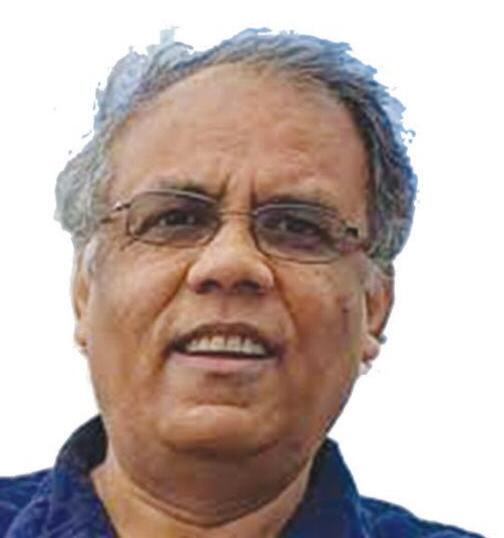

TH E image of a former chief justice hands cuffed behind his back, clad in a bulletproof vest and helmet, being escorted to court is deeply unsettling Yet it is no more disturbing than a chief justice fleeing his official residence in the wake of a popular uprising to seek refuge in a military garrison or another one being forcibly evicted by plainclothes security agents and exiled from his own country Alarmingly Bangladesh has witnessed all of these in just the last eight years It is a tragic chronicle of how the judiciary has been systematically dismantled by an all-too-powerful dictator Sheikh Hasina The repeal of the 13th Amendment to the Constitution which abolished the provision for a non-partisan caretaker government to oversee elections stands as a pivotal moment in this erosion It enabled Sheikh Hasina to conduct three consecutive one-sided elections, tightening her grip on power The Supreme Court had the jurisdiction to rule on the amendment, but the conduct of the then Chief Justice ABM Khairul Haque was questionable His decision to alter the open court s short order reflected in the full verdict issued 16 months after his retirement was viewed by many not only as judicial misconduct but even bordering on forgery or fraud Such conduct fell significantly short of the impartiality and integrity expected of the judiciary seriously eroding public trust Suspicions remain that the delay in issuing the full verdict was intentional allowing Sheikh Hasina to pass legislation that bypassed the short order s provision and facilitated two more elections under the caretaker system She seized this opportunity to abolish the caretaker provision, disregarding even the recommendations of a parliamentary committee More troubling were allegations that Justice Haque sought financial assistance from Prime Minister Hasina s discretionary relief fund for his wife s medical treatment while petitions against the executive were pending before his bench At the very least,
JAZEERA
DAILY

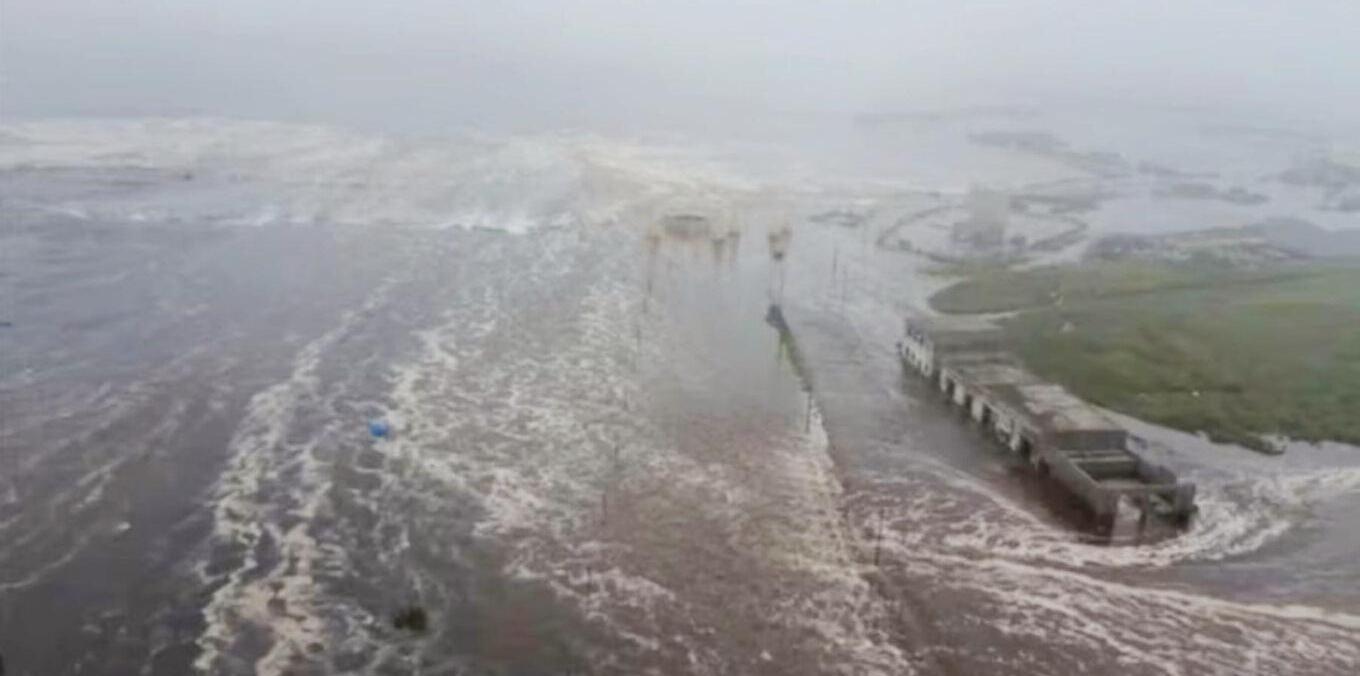
China to stay committed to deepening global cooperation on AI
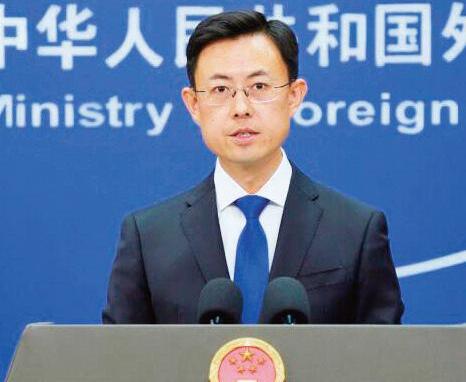
emphasizing more on innovation and cooperation and deepening R&D cooperation and talent exchanges; emphasizing more on common governance and fostering the framework and rules on AI global governance
Second, an action plan for global AI governance was released The action plan draws on other countries’ positive experience and proposes 13 feasible actions that aim at promoting the development and application of safe and controllable AI The document emphasizes on the principle of respecting sovereignty and a fair and for-all approach, focuses on addressing energy and environmental issues and calls for international cooperation and coordinated governance The action plan provides China’s wisdom and contribution to improving AI global governance
Third the creation of a world AI cooperation organization was proposed This is a practical move taken by China to practice multilateralism and echo the aspiration of the Global South, as well as another international public good contributed by China The aim is to unleash the dividends of AI bridge the AI divide and make sure that AI is for good China is tentatively considering establishing the organization s headquarters in Shanghai to give full play to the city s pioneering role in the field of AI, and to pool consensus and advance cooperation

Fourth, the cooperation platform was built for exchanges and results sharing among industries, universities and research institutes The meeting gathered together over 800 AI companies from more than 70 countries and regions exhibited over 3 000 items of cuttingedge technology set up an innovation incubation zone and showcased over 100 influential products who made their China or world debut at the conference
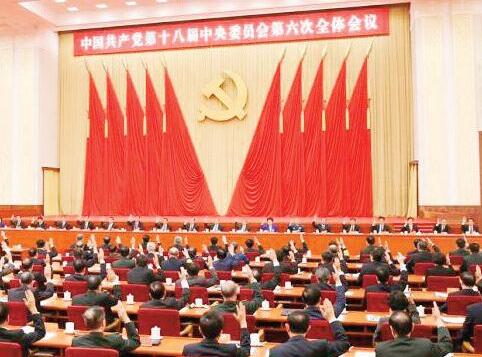
The Communist Party of China (CPC) Central Committee has held a symposium with non-CPC personages to seek opinions and suggestions on the country’s current economic situation and economic work for the second half of the year Xi Jinping, general secretary of the CPC Central Committee, presided over the symposium and delivered an important speech on July 23 Stressing


SBP KEEPS POLICY RATE UNCHANGED AT 11%, DEFYING MARKET EXPECTATIONS OF A CUT
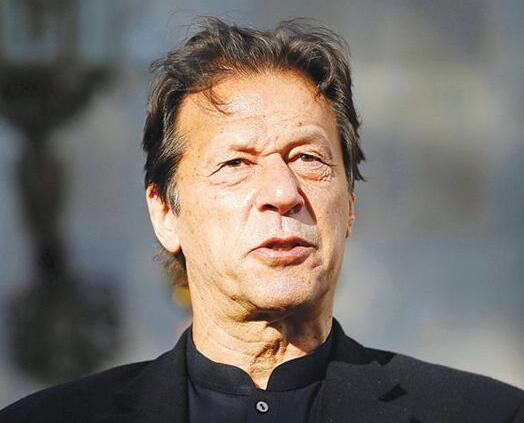

Modi politic all y isolated as a ‘global
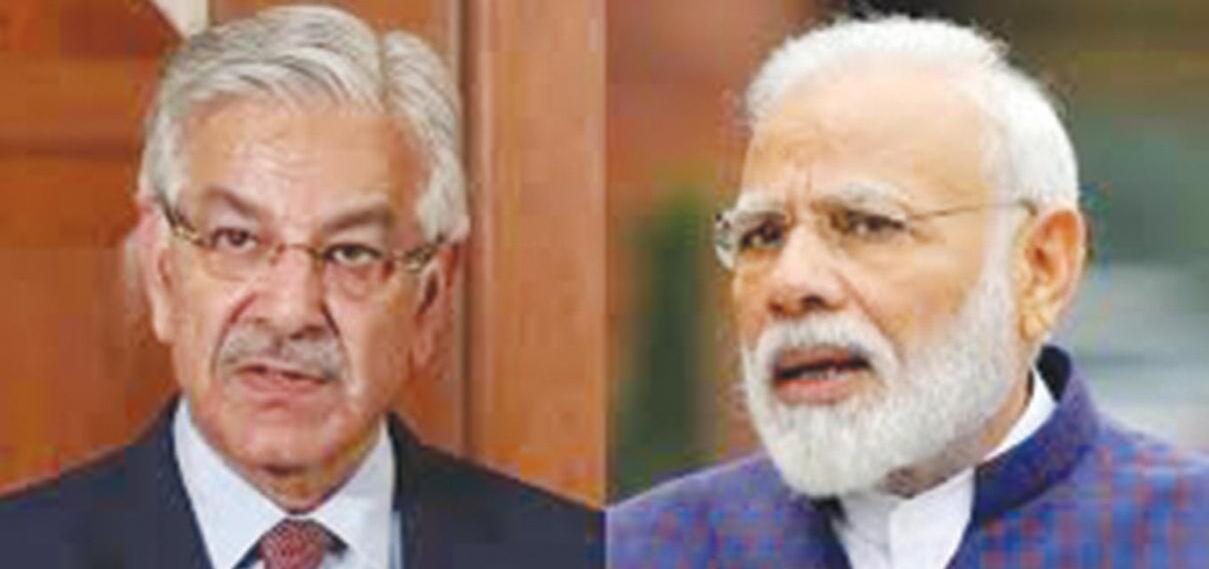
urged Modi to accept
of the May military standoff, pointing out that even India’s media and armed forces have admitted to losing fighter jets to Pakistan
Gilgit-Baltistan (GB) and Khyber Pakhtunkhwa (KP) due to intensified monsoon activity across the country The warning which includes a nationwide impact-based weather alert highlights potential hazards such as urban flooding, landslides, and GLOFs, urging citizens to take necessary
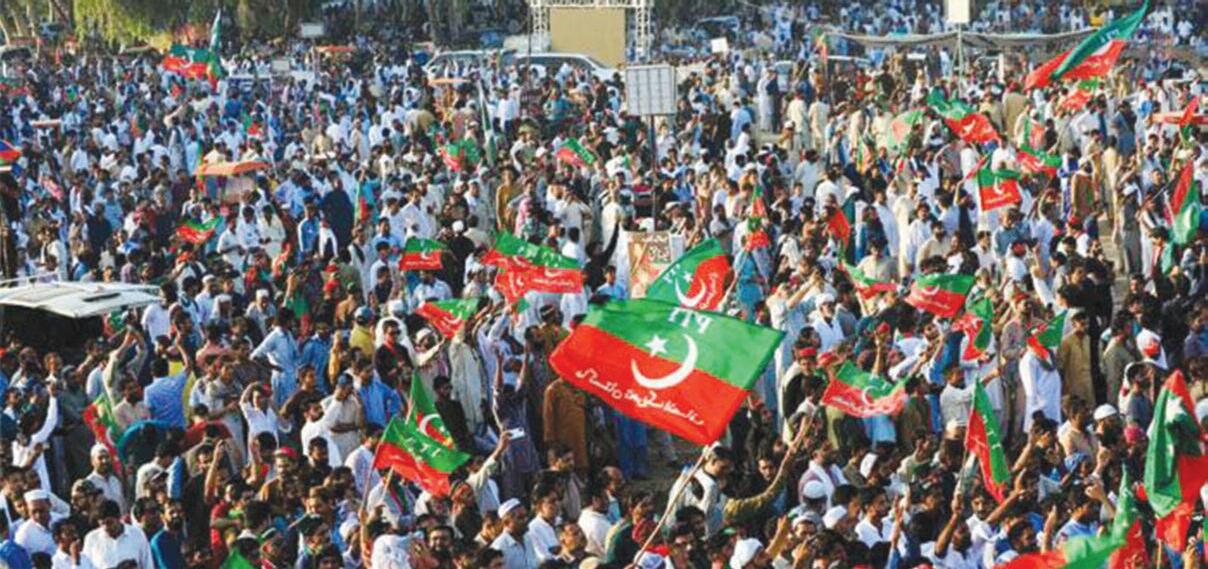
areas in Punjab and KP Urban flooding is anticipated in cities like Islamabad Rawalpindi Gujranwala Lahore Sialkot Khushab Narowal and other regions with sudden water surges expected in northeastern Punjab s Bein Basanter and Deg Nullahs Residents in flood-prone
Although Modi did not directly mention Trump, the US president had repeatedly claimed that his mediation had prevented further escalation LAHORE S
t
The Opposition in the Punjab Assembly on Wednesday strongly condemned police raids on the residences of its MPAs and the alleged harassment of their families ahead of Pakistan
Tehreek-e-Insaf s (PTI) countrywide protest on August 5 As the assembly session began under the chair of Acting Speaker Malik Zaheer Iqbal Channer Deputy Opposition Leader Muhammad Moeenuddin Riaz raised the issue on a point of order expressing serious concern over what he termed as a preemptive crackdown
There are still many days left in August 5, but the police officials have already started conducting raids at the residences of our MPAs ” he said
“It is regrettable that the families of our MPAs and workers are also being harassed by Punjab police he added demanding the law minister take immediate notice of the situation
Riaz also voiced disappointment over the delay in forming a committee to investigate an earlier incident involving an attack and the use of abusive language against Opposition MPAs by the private guards of treasury lawmakers
However, Provincial Minister for Parliamentary Affairs Mian Mujtaba Shujaur Rehman appeared unaware of the raids “It is not in my knowledge ” he said while assuring the House that he would contact senior police officials and the Home Department to obtain more information
Later, Opposition MPA Tayyab
Rashid raised concerns about the illegal human organ trade alleging that a kidney transplantation racket was operating in Sheikhupura under the nose of Chief Minister Maryam Nawaz
He criticised the government for targeting the Opposition instead of addressing pressing issues affecting the public The government should defocus from the Opposition and do something for the needy masses he said PPP MPA Qazi Ahmad Saeed also spoke on the floor, highlighting an alleged water theft scandal He claimed that influential individuals were diverting canal water to their own lands leaving poor farmers helpless They knocked the doors many times of concerned authorities but their efforts proved futile, he told the assembly
From the treasury benches, MPA Amjad Ali Javed raised an issue regarding Higher Education Commission (HEC) policies stating that new regulations were causing distress among computer science students
He said the HEC had ruled that a computer science degree would not be considered valid without accreditation from a specific council
“Students who have completed two semesters are now deeply concerned about the issue Javed noted He urged the HEC to review and relax the policy in the interest of students futures

